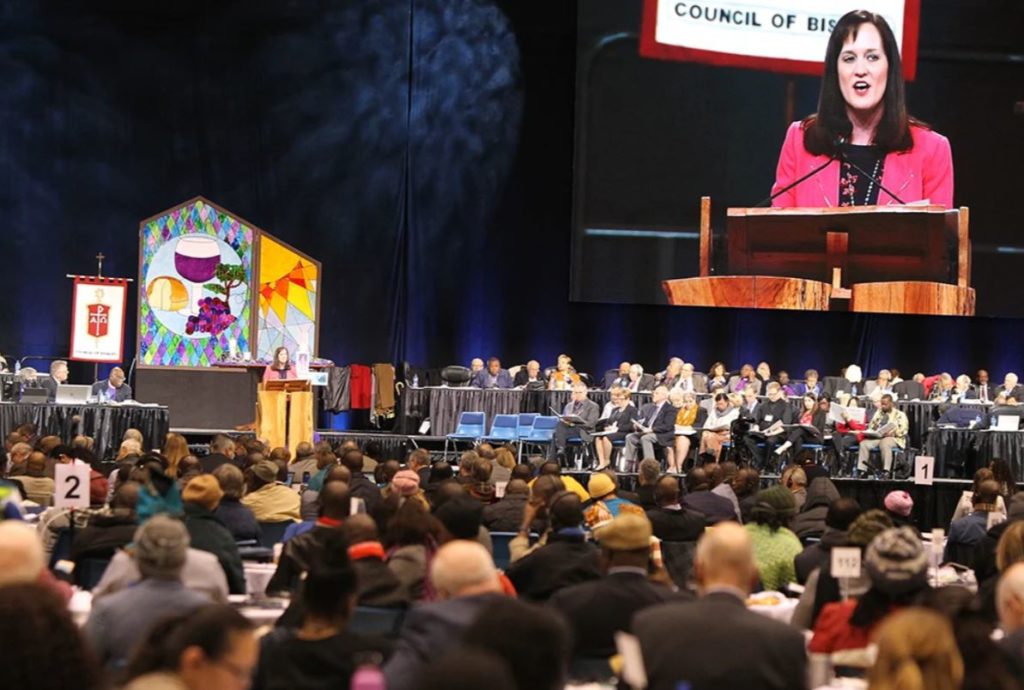
(RNS) — The United Methodist Church has once again postponed its quadrennial meeting due to the COVID-19 pandemic, delaying further a widely anticipated vote by delegates from across the globe on a proposal to split the denomination over the inclusion of LGBTQ members.
The United Methodist Church General Conference now is scheduled for Aug. 29-Sept. 6, 2022, at the Minneapolis Convention Center in Minneapolis.
This is the second time the denomination, one of the largest in the United States, has rescheduled the meeting of its top decision-making body, which will gather 862 delegates and other United Methodists from around the world.
The quadrennial meeting had originally been set for May 5-15 of last year, also in Minneapolis. That meeting was rescheduled for Aug. 29-Sept. 7, 2021, when the Minneapolis Convention Center announced it was restricting events.
Delegates to the General Conference are expected to take up a proposal to split the denomination called “A Protocol of Reconciliation and Grace Through Separation.” The proposal, negotiated by 16 United Methodist bishops and advocacy group leaders from across theological divides, would create a new conservative “traditionalist” Methodist denomination that would receive $25 million over the next four years.
Calls to split one of the largest denominations in the United States have grown since the 2019 special session of the United Methodist General Conference approved what was called the Traditional Plan, strengthening the church’s bans on the ordination and marriage of LGBTQ people.
The Commission on the General Conference made the latest decision to reschedule the General Conference at its meeting Feb. 20, according to the denomination. Commissioners decided they were not able to assure full participation of all General Conference delegates, who travel from across the globe, in either an in-person or a virtual meeting.
The pandemic remains a threat as COVID-19 cases continue to rise, and a vaccine is not expected to be widely available this year in many countries, the denomination noted. New variants of the virus, including one originating in South Africa, also have been reported.
The denomination also considered how the pandemic complicates travel for delegates from outside the U.S. International travelers to the U.S. must show proof of negative COVID-19 test results, but testing is not free or readily available in many places. Visa services also remain limited in some places.
The Commission on the General Conference explored the possibility of holding the meeting virtually. However, a Technology Study Team report laid out a number of issues with a such a meeting, including a lack of infrastructure and technology in some places, concerns about credentialing and verifying the identity of voters and the security of voting.
The study team did suggest delegates could use mail-in ballots to vote on emergency actions, according to the denomination.
From Religion News Service. May not be republished.
















